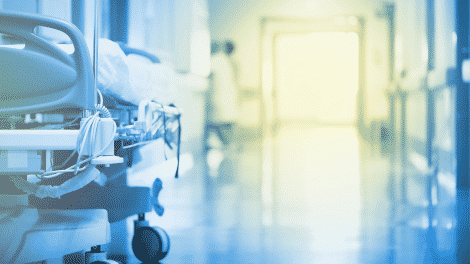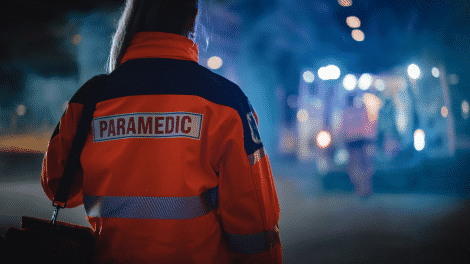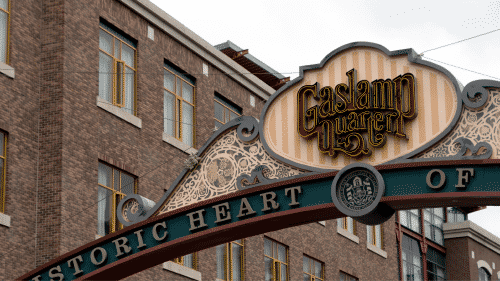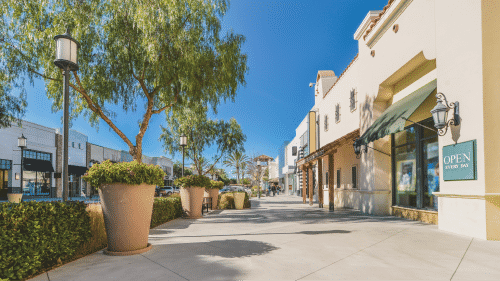Alcohol and Drug Use Statistics in San Marcos, CA

82% of males and 67% of females tested positive for at least one illicit drug upon arrest.2

Meth is the drug of choice among adult arrestees, with 57% of males and 53% of females testing positive.2

Accidental deaths caused by prescription opioids rose nearly 150% from 2019 to 2020.3

Fentanyl overdose deaths tripled, going from 151 deaths in 2019 to 462 deaths in 2020.3

15,080 adults were admitted for drug treatment in San Diego County in 2020.3

EMS workers in San Diego County administered 4,101 doses of Naloxone in 2020.3
Paying for Alcohol and Drug Rehab in San Marcos, CA
Prices vary for drug and alcohol rehab in San Marcos and San Diego County, but cost does not have to be a barrier to treatment. Many facilities in the area offer low-cost or free rehab options, including:
Free Rehab and Sliding Scale Options
Sliding-scale facilities only charge you what you can afford to pay based on your income. In San Marcos, Mental Health System Teen Recovery Center and Capalina Comprehensive Treatment Center offer free or sliding-scale treatment services.
Private Insurance:
Treatment facilities in San Marcos, CA may accept private health insurance, which can significantly reduce the cost of addiction treatment. While some private insurance plans cover rehab services in full, most plans offer at least partial coverage. Contact your provider to learn how much coverage your policy provides.
Medicare or Medi-Cal:
Both government healthcare programs cover specific drug and alcohol rehab services, and you will need to find a treatment center in San Marcos or San Diego County accepting these insurance options.
Medi-Cal provides low-cost health insurance to low-income residents and typically covers:4
Outpatient treatment
Residential treatment
Opioid treatment programs
Medication Assisted Treatment
Detox
Case Management
Aftercare
Physician Consultation
Medicare provides coverage for people aged 65 and older or those who have a disability and meet income-based requirements. It typically covers:5
Outpatient treatment
Inpatient rehab
Medication Assisted Treatment
Partial hospitalization
Group and individual counseling
Telehealth
Alcohol misuse screenings
Opioid addiction treatment
Levels of Care for Substance Abuse
Multiple levels of care exist for alcohol and drug rehab in California. Some residents require all levels of care during their journey to recovery, while others receive only the less intensive options.
Medical Detox
Detox is the process of safely and comfortably removing drugs or alcohol from your system while in a supervised medical setting. Many people choose a medical detox program to prevent severe withdrawal symptoms. This is often the first step in the recovery process, completed before transitioning into formal inpatient addiction treatment services.
Inpatient Care
An inpatient or residential setting involves living at an accredited rehab facility 24/7 to receive treatment for addiction. A combination of evidence-based interventions are provided, including individual and group therapy, nutritional counseling, and medication administration.
Partial hospitalization programs (PHPs)
PHPs are a type of outpatient treatment in California that often involve many of the same therapies and methods of inpatient care. The difference being that you only visit the drug rehab during scheduled session times, then you can return home.
Intensive Outpatient Programs (IOPs)
A step down from PHPs, IOPs are a type of outpatient treatment in California allowing you to attend onsite sessions for several hours a day, multiple days each week, while spending the rest of your time at home, working, or fulfilling other obligations.
Standard Outpatient
As the least intensive setting, standard outpatient care is appropriate for California residents who are highly motivated and have a strong support system. It involves just one or two hours of treatment per week.
Relapse Prevention
Aftercare, or relapse prevention, provides ongoing support after a rehab program is complete. Aftercare may include 12-step groups, non-12-step groups like SMART Recovery, ongoing therapy, sober living homes, and more.
How to Pay for Substance Abuse Treatment in California
Private Insurance
Every insurance provider in the U.S. is required by law to provide at least some coverage for mental health and substance abuse treatment. In California, residents should contact their insurance provider to confirm specific coverage with their carrier, including applicable copays.
Medi-Cal
Medi-Cal is California’s Medicaid program. Funded by federal and state taxes, this program pays for medical services for children and adults who have limited income. To qualify for Medi-Cal, California residents must meet income requirements and be one of the following: pregnant, responsible for a child under 21 years old, blind, disabled or a disabled family member, or 65 years or older.
California Medicare
California Medicare is a government program providing coverage to residents who are over the age of 65 or who have end-stage renal disease. California residents can use Medicare to cover the cost of rehab and other addiction treatment services; however, not all rehabs accept Medicare insurance.
Sliding Scale Payment Options
Sliding scale payment plans only charge California residents what they can afford, based on their income. To qualify, residents typically need to provide proof of income and assets.
TRICARE in California
California TRICARE (West Region) is a government program that provides health insurance for military personnel, veterans, and their dependents. TRICARE coverage includes addiction treatment services, such as rehab and medication-assisted treatment (MAT).
IHS-Funded Drug Rehabs
Drug rehab programs funded by the Indian Health Service provide free addiction treatment to California Natives and Indigenous peoples in the U.S.
Travel to and Within San Marcos, CA
For those traveling to San Marcos, CA for treatment or to visit a loved one who is receiving services, here’s some helpful insider info about the area.6,7

Reach the Gaslamp Quarter in downtown San Diego in 35 minutes by car.

The Pacific Ocean is only a 30-minute drive west from San Marcos.

The city has 19 major parks and 19 mini parks, earning the nickname “San Parkos.”

Enjoy shopping and dining destinations like Grand Plaza, Creekside Marketplace, and Nordahl Center.

Local accommodations include several major hotel chains with reasonable rates for visitors.

Carlsbad is the closest airport (7 miles), but San Diego International (29 miles) offers more flight options.
California Alcohol and Drug Laws
California law includes the following policies related to substance abuse:1,2,3,4,5
California Employee Protections for Drug or Alcohol Rehab: California’s labor code requires employers with 25 or more employees to provide accommodation to staff who voluntarily choose to attend alcohol or drug rehab. This may include unpaid time off or use of sick or vacation time. Employees who wish to request time off for addiction treatment may be able to request it under the Family and Medical Leave Act or the California Family Rights Act.
Substance Abuse and Crime Prevention Act: This act provides treatment opportunities for individuals who are convicted of non-violent crimes. Eligible offenders may serve their time in drug treatment rather than in prison.
California Government Prevention and Care Services: Senate Bill 110 expanded these services to include contingency management (an incentivized treatment program) as a benefit covered under Medi-Cal. Patients who demonstrate substance-free behavior, such as drug-free urine tests, are rewarded with vouchers or gift cards.
California Ethical Treatment for Persons with Substance Use Disorder Act: This bill protects residents undergoing addiction treatment by requiring alcohol and drug rehabs in California to adopt a client bill of rights that seeks to ensure every client is are treated with dignity, honesty, and respect.
California’s Good Samaritan Law: This law encourages California residents to call 9-1-1 if an overdose is suspected. It protects individuals who seek emergency medical care for overdose from legal repercussions for possession of a controlled substance/drug paraphernalia or providing alcohol to minors.
Resources
- Kucher, K. (2022, September 1). Overdose deaths surged 33% in San Diego County last year; local authorities warn of “fentanyl nightmare” – The San Diego Union-Tribune. San Diego Union-Tribune. https://www.sandiegouniontribune.com/news/public-safety/story/2022-08-31/overdose-deaths-surged-33-in-san-diego-county-last-year
- Criminal Justice Clearinghouse. (2021). 2020 Adult Arrestee Drug Use in the San Diego Region. https://www.sandag.org/uploads/publicationid/publicationid_4790_29577.pdf
- Salven, Sarah. (2021). 2021 report card. Prescription Drug Abuse Task Force San Diego County. https://www.sdpdatf.org/_files/ugd/6b5bbf_a8e2a38a2fd44845997e03c45de50992.pdf
- DMC-ODS Treatment Services. Retrieved September 12, 2022, from https://www.sandiegocounty.gov/content/sdc/hhsa/programs/bhs/alcohol_drug_services/dmc_ods_consumer.html
- Mental health & substance use disorder services. (n.d.). Medicare. Retrieved September 12, 2022, from https://www.medicare.gov/coverage/mental-health-substance-use-disorder-services
- Welcome to the City of San Marcos. (n.d.). San Marcos, CA. Retrieved September 12, 2022, from https://www.san-marcos.net/live/about-us
- Ltd, rome2rio P. (n.d.). How to get to San Marcos from 5 nearby airports. Rome2rio. Retrieved September 12, 2022, from https://www.rome2rio.com/s/Nearby-Airports/San-Marcos-CA-USA



